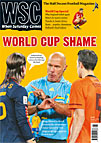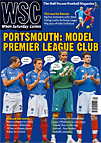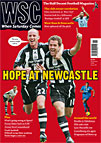 Karsten Blaas explains how indecision over fireworks at German football matches has caused fights between ultras and police on the terraces
Karsten Blaas explains how indecision over fireworks at German football matches has caused fights between ultras and police on the terraces
For their live coverage of the second round of the German cup, played in late October, the TV station ZDF chose Borussia Dortmund’s encounter with Dynamo Dresden, east Germany’s best supported team, who are now back in the second tier after a decade of decline. What happened on the pitch was as dull as had been expected. Dortmund won a lacklustre game 2-0. The events on the terraces and outside the ground, however, had a long-term impact, raising questions about police tactics and the role of the ultra movement in German football.



